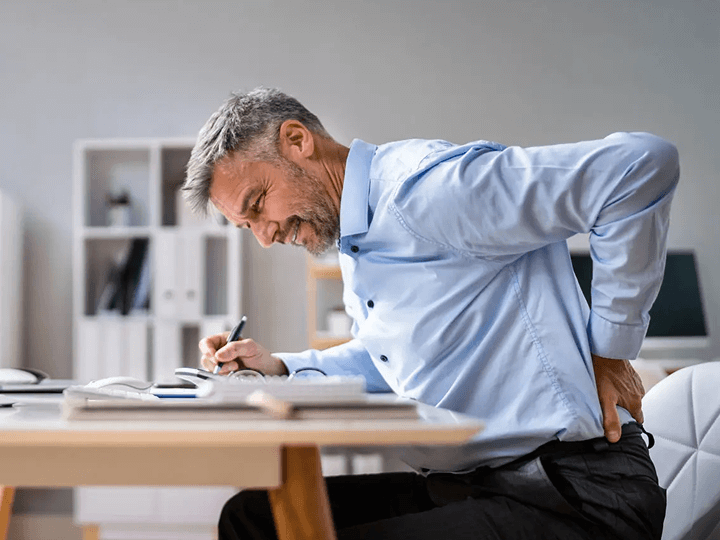
Spinal Stenosis: What It Is—and How Smarter Sitting Can Help
Struggling with Spinal Stenosis?
If you’ve been diagnosed with spinal stenosis, you know how quickly it can make standing, walking, or even sitting a challenge. That dull ache, tingling, or weakness in your back and legs? It’s not just frustrating—it can feel limiting. While surgery or physical therapy may be part of your plan, one often-overlooked piece of the puzzle is how you sit.
Poor seated posture can significantly increase spinal compression, aggravate symptoms, and slow your recovery. But the right support can help relieve pressure and restore comfort.
learn how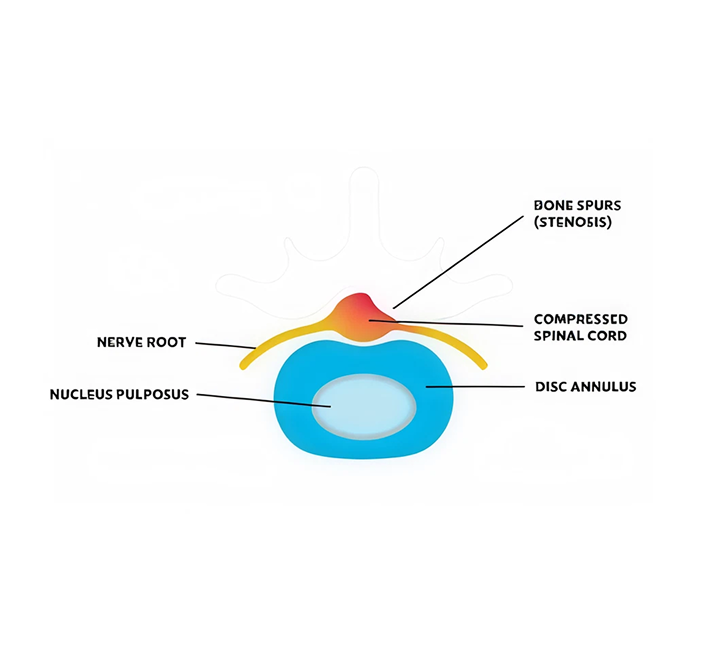
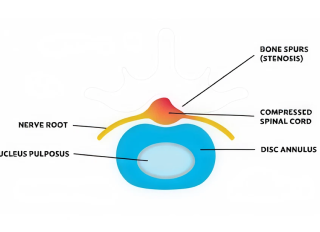
What Is Spinal Stenosis?
Spinal stenosis is the narrowing of the spinal canal, which puts pressure on the spinal cord and nerves. It most commonly affects the lumbar spine (lower back), but it can also occur in the cervical spine (neck).
Causes of Spinal Stenosis
- Degenerative changes: Age-related wear and tear is the most common cause. This includes disc degeneration, osteoarthritis, and thickened ligaments.
- Herniated discs: When discs bulge or rupture, they can intrude into the spinal canal.
- Bone spurs: Arthritic changes can lead to overgrowth of bone that narrows the canal.
- Congenital narrowing: Some people are born with a naturally narrow spinal canal.
- Spondylolisthesis: When a vertebra slips forward, it can compress nerves within the spinal canal.
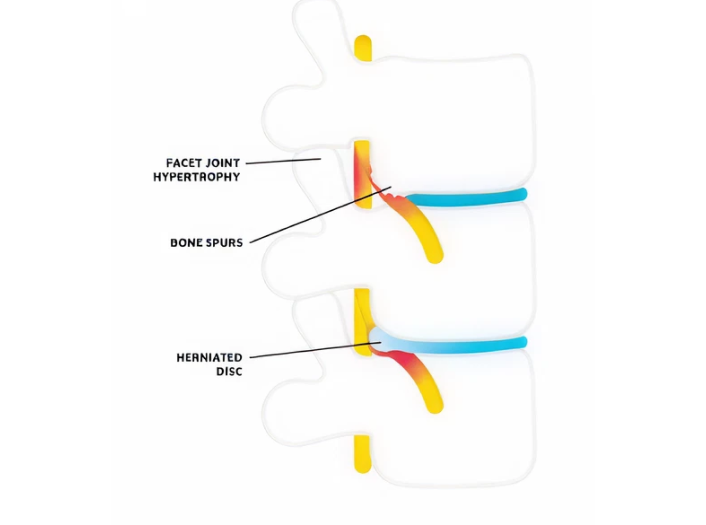
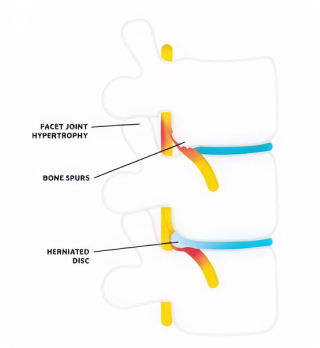
Common Symptoms
Symptoms vary depending on the severity and location of the stenosis, but may include:
- Lower back pain
- Numbness, tingling, or weakness in the legs or feet
- Pain or cramping in the legs, especially when standing or walking
(neurogenic claudication) - Difficulty balancing
- Relief when bending forward or sitting (which opens the spinal canal)
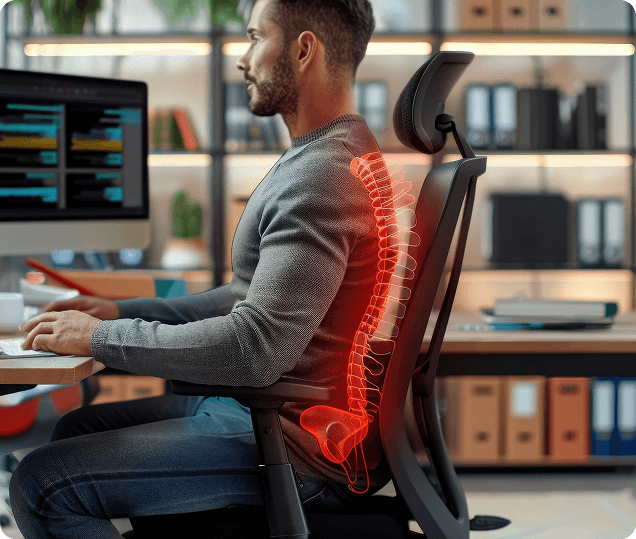
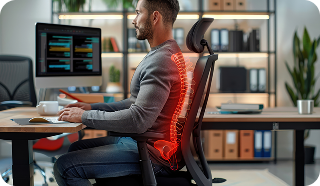
Why Sitting Matters with Spinal Stenosis
Although standing and walking may worsen stenosis symptoms, poor sitting posture
can also make it worse by compressing the spine and altering pelvic alignment..
Poor Posture Worsens Stenosis By:
- Increasing lumbar flexion and narrowing the spinal canal
- Creating slumped sitting, which loads the spinal discs and joints unevenly
- Causing pelvic instability, which leads to muscle compensation and fatigue
- Reducing circulation to nerves already under pressure
 *Research has shown that postural adjustments and optimized seating can improve spinal loading and alleviate symptoms of spinal stenosis.*¹ ²
*Research has shown that postural adjustments and optimized seating can improve spinal loading and alleviate symptoms of spinal stenosis.*¹ ²
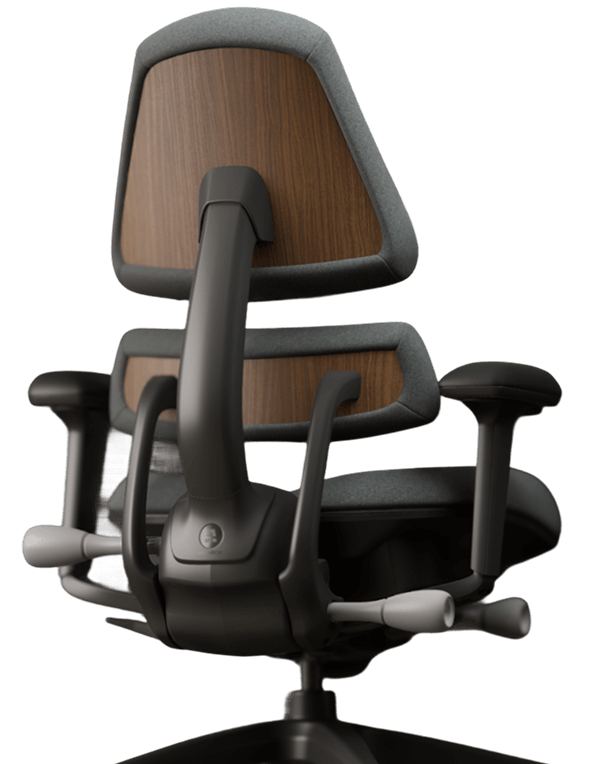
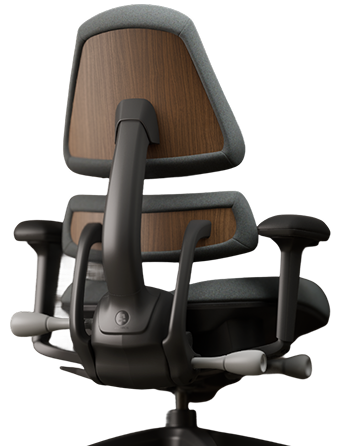
Smarter Support
What To Look For In A Chair
- Support the pelvis in a neutral position to reduce muscle fatigue
- Provide dynamic upper back support to match the natural curve of your spine
- Encourage upright, active sitting that doesn’t rely on your muscles to hold you up
The Solution:
the Anthros
Chair
Designed to Open the Spine and Relieve Pressure
At Anthros, we understand how spinal stenosis can impact daily life—and how proper sitting can ease it. Our patented two-part back system is designed to stabilize your pelvis and support your spine without forcing your body into awkward positions.
Our Precision Posture System supports the pelvis in a neutral position while allowing the thoracic spine to move freely. This positioning gently opens the lumbar canal and eases nerve compression.
Lean back without collapsing your posture. Unlike traditional tilt mechanisms that flatten your spine, our design maintains alignment to reduce spinal stress while sitting or reclining.
Designed to minimize peak pressure under your buttocks and thighs, this contoured medical-grade foam supports circulation and reduces nerve irritation when sitting for long periods. Using Cloudfloat® and Cloudtex® technology, sitting all day without constant shifting or discomfort becomes a reality.
Sit Smarter.
Feel Better.
Spinal stenosis doesn’t have to control your comfort. The right chair can make a powerful difference in your day-to-day function, from reducing nerve symptoms to helping you stay active longer. Don’t settle for a chair that works against your body.
Discover the Anthros difference—engineered for posture, built for relief.
Book a Free Consultation SHOP THE ANTHROS CHAIR60 Day Money Back Guarantee
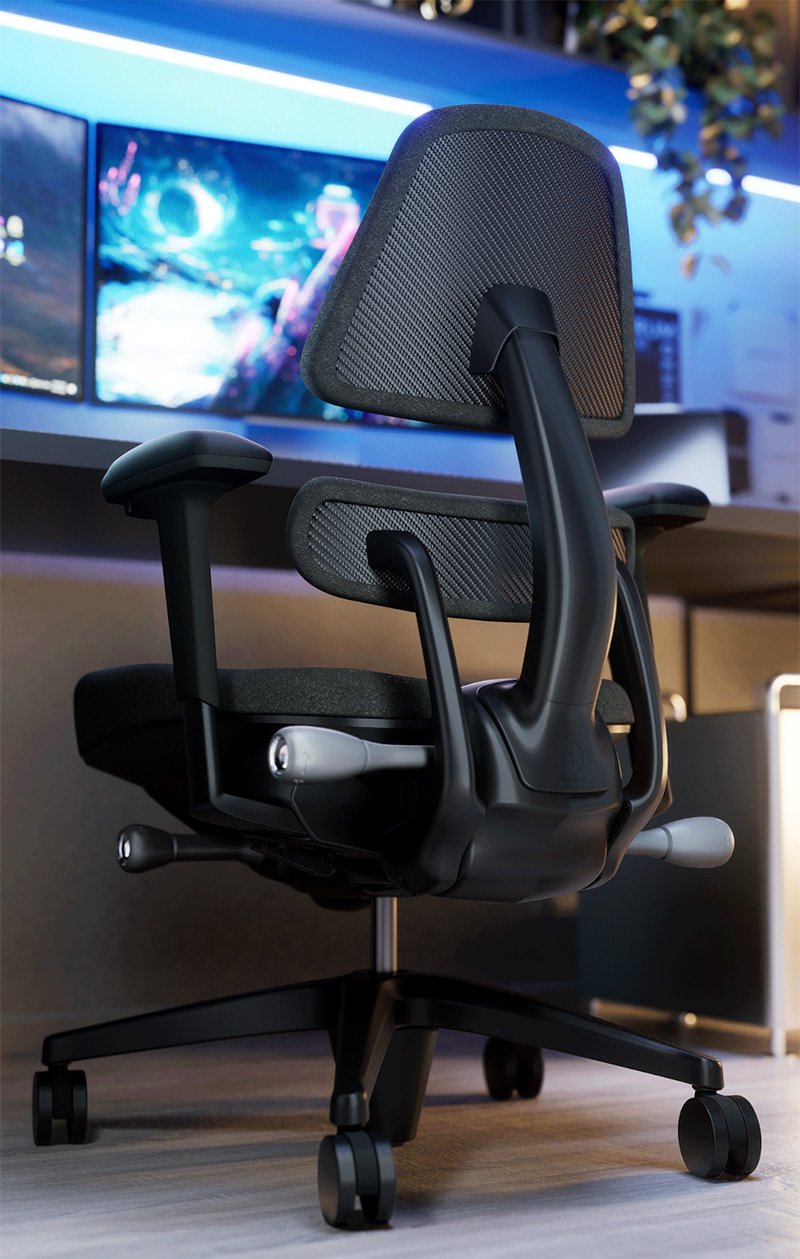
Join the Anthros family
Sign up to get special offers, the latest videos, new, + more!
By signing up, I agree with the data protection policy of Anthros
Here's What Anthros Owners with Stenosis are Saying
Customer reviews






I love this chair as every time I sit on it I feel like my whole spine and posture is aligned so effortlessly. I look forward to sitting in my chair everyday! The customer service and the team at Anthros is really just superb, they are very accommodating and patient with my requests and they always reply in a timely manner. Really thank you so much. I very rarely write reviews but the whole experience was just so pleasant I just cant pass up on doing so.
My previous office chair was a Herman Miller. It was a good chair. Right out if the box my Anthros chair exceeded my expectation for all day comfort. I was very aware that at the end of the work day (sometimes 10-11 hours) my body is not tired and hurting. If you are looking for an new office chair, the Anthros chair is worth every cent. Your body will thank you!
I work from home and spend most of my waking hours at my computer — both for work and after hours. My previous chair offered virtually no back support and forced my legs into a closed position. Being 5' tall with a curvier build, my upper back never made contact with the backrest unless I was actively leaning back, which meant I was essentially unsupported for the majority of the day. When I work, I prefer to sit upright with my feet flat on the floor and my knees apart. Finding a chair that actually accommodates that posture at my height has been a long search. I've had the Anthros for almost two months now and log roughly 14 hours a day in it. It has been a game changer. The pelvic and upper back support keeps me sitting fully upright without any effort — I'm not fighting the chair to maintain my posture, the chair is doing that work for me. Even after hours without remembering to take a break, I feel no numbness or discomfort in my seat. The seat edge design is generous enough that there's zero pressure on the sides or underside of my legs, which was a constant issue with my previous chair. The dual-back system was key to getting the fit right for my body. I have the pelvic adjustment nearly all the way back, which allowed me to bring the upper back support further forward — exactly where I needed it. That independent adjustability is what sets this chair apart. For what it's worth, I didn't experience any discomfort during the adjustment period, but everyone's different there. I do have armrests on my chair, though I rarely use them except when getting out of the chair. They stay locked well and don't rotate on their own, which is good. The one thing I'd flag is that they feel a bit short even fully extended — something to keep in mind if armrest height matters to you. I haven't used the tilt functionality at all. Sitting fully upright is the sweet spot for me, and the chair supports that perfectly without needing to recline. I was also pleasantly surprised that it doesn't trap heat. For a chair with this much cushioning and support, I expected it to run warm, but it hasn't been an issue. With my upper back fully supported, I genuinely do not miss not having a headrest. That surprised me — I thought it would feel like something was missing, but it doesn't. The price is steep, no question. But given that I'm essentially living in this chair, investing in something that actually supports my body properly was the right call. I'm no longer sore at the end of the day, and that alone makes it worth it.
Let me tell you. This chair is a game changer. I am a Counselor, and I work from home 60+ hours a week. I sit in my Anthros every day, all day long, 6 days a week. I used to have weekly visits to the chiropractor, and now I only go PRN. I love it. It is worth every penny I paid, and then some. Actually, I am saving so much not going to the chiropractor, it should pay for itself within 2 years. A word of advice: Get the foot support. It takes the pressure off of the back of your knees from sitting all day. I didn't get it, and I was able to email them for a link to purchase it after.
Great customer service, the personal online therapists was great and very helpful in getting my chair setup properly!
Info
Join our email list
Sign up to get special offers, the latest videos, news, + more.




